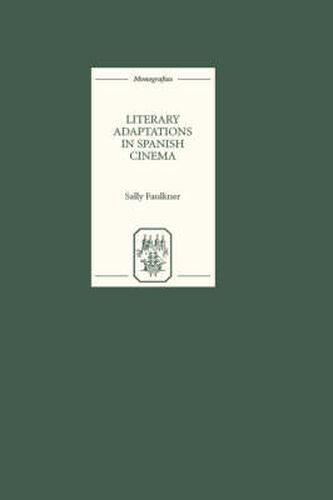Readings Newsletter
Become a Readings Member to make your shopping experience even easier.
Sign in or sign up for free!
You’re not far away from qualifying for FREE standard shipping within Australia
You’ve qualified for FREE standard shipping within Australia
The cart is loading…






New readings of literary and cinematic texts are presented here in historical context, informed by cultural theory. In her survey of the history of Spanish cinema in the dictatorship and democratic periods, the author argues that studies of adaptations must simultaneously address questions of ‘text’ - formal issues central to the study of film and literature - and ‘context’ - ideological concerns crucial to late twentieth-century Spain. She examines three themes of particular importance to contemporary Spanish culture - the recuperation of history, the negotiation of the rural and the urban, and the representation of gender - and considers the related stylistic issues of the affinities between cinematic expression and nostalgia, the city and phallocentrism. The study concludes with an analysis of the formal question of the narrator in film and literature, through an assessment of Bunuel’s previously unacknowledged stylistic debt to Galdos as manifested in his adaptations of Nazarin and Tristana. SALLY FAULKNER is Lecturer in Hispanic Studies at the University of Exeter.
$9.00 standard shipping within Australia
FREE standard shipping within Australia for orders over $100.00
Express & International shipping calculated at checkout
New readings of literary and cinematic texts are presented here in historical context, informed by cultural theory. In her survey of the history of Spanish cinema in the dictatorship and democratic periods, the author argues that studies of adaptations must simultaneously address questions of ‘text’ - formal issues central to the study of film and literature - and ‘context’ - ideological concerns crucial to late twentieth-century Spain. She examines three themes of particular importance to contemporary Spanish culture - the recuperation of history, the negotiation of the rural and the urban, and the representation of gender - and considers the related stylistic issues of the affinities between cinematic expression and nostalgia, the city and phallocentrism. The study concludes with an analysis of the formal question of the narrator in film and literature, through an assessment of Bunuel’s previously unacknowledged stylistic debt to Galdos as manifested in his adaptations of Nazarin and Tristana. SALLY FAULKNER is Lecturer in Hispanic Studies at the University of Exeter.